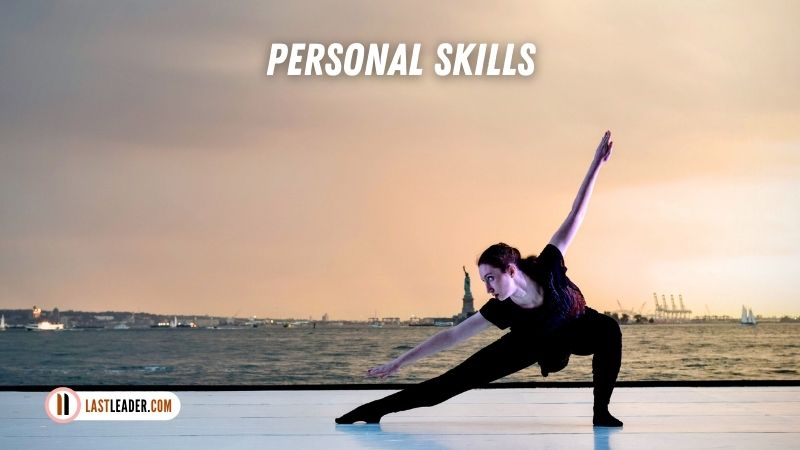Every day we all face many difficulties in our life. Many times there are situations that we cannot handle even if we want to. So many times we have to face heavy tension/stress while dealing with them. And the problem is that you don’t know how to reduce stress?
Many of us have become so accustomed to withstanding certain kinds of stresses that we are unable to feel them. Such tension is called eustress (good stress).
It is normal to have stress or tension. It is felt when it becomes difficult to deal with a situation. When tension occurs, adrenaline starts running throughout our body. The heart rate increases and mental and physical consciousness increases greatly. We sweat, feel the sensation and sometimes the whole body weeps.
Stress can be negative or positive, depending on the situation. Positive stress (known as eustress) may include an upcoming wedding, pregnancy, or holidays. On the other hand, negative stress (known as distress) results in the full-blown stress response.
How to reduce Stress?
Some of life’s problems are such that you keep them in your mind for some time and you will feel that everything is fine. Think about them for a long time and you will start to suffer. And keep them in your mind for a long time and it will give you to paralyze. And you will not be able to do anything.
That’s why the right way is to avoid these problems and have fun. So, considered an effort to be stress-free and spread happiness.
15 Great Tips to deal with Stress
Practice our 15 easy tips to help manage and reduce your stress levels.
1. Listen to Favorite Music
You listen to your favorite music at the time of tension. Music calms us down and drives us out of boredom. You can listen to your songs according to your mood. Music has a lot of power which helps us to overcome emptiness and shows our real-life through music. So listen to music and relieve your stress.
2. Take a bath with Cold Water
This is my most effective way to relieve stress. Whenever stress engulfs me, I take a bath with cold water to get rid of stress. Whenever you are under stress, bath with cold water and bathe fiercely. When a stream of cold-water falls on our body, our body reduces our stress level and hormones are produced to reduce stress in us.
3. Stay away from Drugs

Prevent, or Reduce, your ingestion of nicotine and some other beverages containing alcohol and caffeine.
Caffeine and nicotine are stimulants and can boost your level of anxiety instead of reducing it.
Depressant when taken in massive amounts, but functions as a stimulant in smaller amounts. Hence using alcohol as a means to alleviate anxiety isn’t ultimately valuable.
Swap carbonated and Alcoholic beverages for water, herbal teas, or diluted organic fruit juices and goal to keep yourself hydrated since this will enable the human body to deal with stress.
You should also plan to prevent or Lower Your intake of processed Sugars – they’re comprised in several manufactured foods (in savory foods like salad dressings and bread) and may lead to energy crashes that might cause one to feel irritable and tired. Generally, attempt to consume a healthful, well-balanced and healthy diet.
4. Take Potassium
Potassium is a mineral that helps to keep the heartbeat normal and carries oxygen to the brain. It also maintains the balance of water in the body regularly. When we are mentally under stress, our metabolic rate starts increasing, due to which the level of potassium in the body starts falling. To balance it again we need high potassium content.
5. Eat bananas and reduce stress

Bananas are considered to be the best fruit to relieve stress. It not only removes stress, but it is also very useful for our health. That’s why you should eat bananas.
6. Indulge in Comedy
In stress, a person is seen withered, his face is sad, to get out of this you can connect with such things that make you feel good and make you happy. You can watch TV, watch laughing serials, watch thousands of comedy videos on youtube, read jokes and be with people who are adept at laughing. In this case, you will feel good.
7. Exercise Daily
Stressful Circumstances Raise the degree of stress hormones like cortisol and adrenaline in your system. All these are the”fight or flight” hormones which development has hardwired to our brains and that are made to shield us from immediate bodily injury once we are under threat.
On the other hand, the stress in today’s era is infrequently remedied by means of a fight or flight reaction and so bodily exercise may be utilized as a means to metabolize the surplus stress hormones and revive your body and head to a calmer, more relaxed condition.
At the point when you feel tense, take an energetic walk in the natural fresh air. Attempt to join some physical activity into your everyday schedule all the time, either previously or after work or at noon. Ordinary physical movement will likewise improve your sleep quality.
8. Learn – How to Say “NO”?

And in this circumstance, a lot of folks will still agree to take on further responsibility. Learning how to say “No” to insignificant or additional requests can help to cut back your level of anxiety, and might also assist you to develop longer self-confidence.
A lot of men and women find it really hard to say”No” since they would like to help and are trying to be fine and to be appreciated. For many others, it’s a fear of rejection, conflict, or missed opportunities. Bear in mind these obstacles to stating”No” are self-created.
You may feel rather, consider a few pre-prepared phrases to allow other individuals down more softly. Practice saying phrases like:
- Sadly, I have something else.
- Sorry, I’m booked into something else right now.
- No, thank you but it sounds lovely, so next time.
- I’m honored but I can’t.
9. Talking with Friends
Just speaking to Someone about the way you are feeling could be useful.
Discussing can operate by Either distracting you from the stressful thoughts or releasing a number of those built-up tension by talking it.
Stress can cloud your judgment and keep you from seeing things unmistakably. Talking things through with a companion, work partner, or even stress expert can assist you with discovering answers for your anxiety and put your issues into point of view.
10. Take a Deep Sleep

Little sleep is an important source of anxiety. Regrettably, though, anxiety also disrupts our rest as considerations continue spinning through our heads, preventing us from loosening up enough to nod off.
Instead of relying on medicine, your goal should be to optimize your comfort before going to sleep. Ensure your bedroom is a calm oasis with no reminders of the things which cause you anxiety. Stay away from caffeine throughout the day, in addition to excessive alcohol should you are aware this contributes to troubled sleep.
Quit doing some mentally demanding work a few hours before going to bed so you give your mind time to relax. Consider taking a hot bath or reading a relaxing, undemanding book to get a couple of minutes to unwind your entire body, tire your mind, and allow you to forget about the things which worry you.
You should also plan to Proceed to bed at about the exact same time every day in order for your body and mind get used to some predictable bedtime routine.
Also, Read: Avoid Insomnia | Have a stress-free good sleep
11. Maintain a Stress Diary
Maintaining a stress diary For a couple weeks is a powerful stress management tool since it can allow you to become more conscious of the situations that make you become stressed.
Time, rather than every stressful event, and notice what you’re doing, who you’re with, and the way you felt both emotionally and physically. Give every stressful episode a pressure evaluation (on, assume 1-10 scale) and use the diary to understand what causes your anxiety and how successful you’re in stressful circumstances.
12. Take Control of Yourself
Stress may be triggered by an issue that can on the surface appear impossible to address. Finding out how to find answers to your problems can allow you to feel more in command thereby decreasing your level of anxiety.
One technique entails writing down the Issue and coming up with as many potential solutions as possible. Choose the positive and negative points of each one and choose the ideal solution. Write down every step you have to take within this solution: everything will be achieved, how can it be achieved, when is it done, who’s involved and where can it occur.
Also, Read: – Decision Making Process | How to make a decision?
13. Time Management

Sometimes, All of us feel accept that you can’t do everything at once and begin to prioritize and diarise your own tasks.
Create an inventory of all of the things which you will need to do and record them as a way of real priority. Notice what jobs you have to do personally and everything could be delegated to other people to perform. Record which jobs have to be accomplished immediately, within another week, within another month, or whenever time permits.
By editing what may Have begun as an overwhelming and laborious task record, you are able to split it down into a collection of smaller, more manageable jobs spread out over an extended time period, with a few jobs eliminated from the list completely through delegation.
Recall as well to create buffer occasions to manage emergency and unexpected jobs, and to add time to your relaxation and well-being.
Also See:
- Importance of Time Management – Time management tips
- Short Story on Time Management – Time Management Training
- Free time activities – What to do in free time?
14. Rest If You’re ill
If You’re feeling unwell, don’t believe you need to continue regardless. A brief spell of rest will permit the body to recuperate quicker.
15. Try out Relaxation Techniques
Daily, try to unwind There are lots of tried and tested approaches to decrease anxiety so try several and find out what works best for you.
By Way of Example, try Self-hypnosis that’s quite straightforward and can be performed anywhere, even in your desk or in the vehicle. One very straightforward technique is to concentrate on a word or term which has a positive significance for you.
Words like”peace”, “love” and”calmness” work nicely, or you might think about a self-affirming mantra like”I deserve calm in my entire life” or”Grant me serenity”.
Concentrate on your preferred word or term; should you find your mind has wandered or you become conscious of intrusive thoughts entering your mind, just dismiss them and return your attention to the selected word or term. If you discover yourself becoming stressed again after, just quietly repeat your sentence or term.
Do not worry if you find it hard to unwind in the beginning. Relaxation is a skill that has to be heard and will improve with exercise.
Relaxation Techniques to reduce stress
The following are six comfort techniques that could enable you to evoke the relaxation response and reduce stress.
1. Breath focus
Within this simple, effective technique, you take long, slow, deep breaths (also called abdominal or belly breathing). As you breathe, then you lightly disengage your head from distracting thoughts and senses.
Breath focus can be particularly helpful for individuals with eating disorders to help them focus on their own bodies in a more favorable manner. But this technique may not be appropriate for those with health conditions that make breathing difficult, for example, respiratory ailments or heart failure.
2. Mindfulness meditation
This practice entails sitting comfortably, focusing on your breathing, and bringing your brain’s attention to the present moment without drifting into issues about the past or the future. This kind of meditation has enjoyed increasing popularity in recent years. Research suggests it may be helpful for people with stress, depression, and pain.
3. Guided imagery
With this technique, you conjure up soothing scenes, areas, or adventures in your mind that will help you relax and focus. It is possible to discover free programs and online recordings of relaxing scenes–just be sure to choose imagery you find soothing and that’s personal significance.
Guided imagery may help you reinforce a positive vision of your self, but it can be challenging for people who have sensitive ideas or find it hard to conjure up mental images.
4. Body scan
This technique combines breath focus with progressive muscle relaxation. Following a few minutes of deep breathing, you focus on one part of the human body or group of muscles at a time and mentally releasing any physical tension you feel there.
A body scan can help improve your comprehension of the mind-body connection. If you have had a recent operation that affects your body picture or other difficulties with body image, this procedure might be less useful for you.
5. Yoga
These three ancient arts combine rhythmic breathing with a series of postures or flowing movements. The physical aspects of the practices offer you a mental focus which could help distract you from rushing thoughts. They are also able to improve your stability and flexibility. But if you aren’t generally busy, have medical problems, or even a debilitating or disabling illness, these relaxation techniques may be overly hard. Check with your health care provider before starting them.
6. Repetitive prayer
With this technique, you quietly repeat a short prayer or phrase from a prayer while practicing breath focus. This method might be especially appealing if religion or spirituality is significant to you.
Rather than picking only 1 technique, experts recommend sampling a few to see which one works best for you personally. Try to exercise for at least 20 minutes daily, although even only a few minutes might help. But the more and the more frequently you practice these relaxation techniques, the larger the advantages and the more you can lower stress.
If you are really feeling difficult to recover from tension/stress then it is better to go to the doctor without delay. Psychiatrists really understand your problem better than others.
Problems like stress, depression are as common a disease as having a cold or fever. If you can go to the doctor for their treatment then why not for the treatment of tension? Do not hesitate and talk to the doctor about this matter.
Further Reading from Topic you need >> How to deal with depression/burnout in your life?
All images by: Canva






